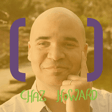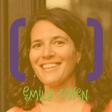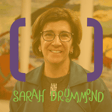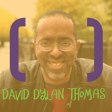
Tori Mick: Build Interfaith Communities. For Everyone.
What does it look like to build interreligious community, when it’s mandated by the government? How can people work together to find creative solutions to complex problems?
Tori Mick is a DRE — Director of Religious Education — for the United States Army, a civilian position that provides educational content to Army chaplains to help protect and provide for the exercising of the First Amendment rights of soldiers and their families, in whatever tradition of faith and spirituality that they practice.
Tori talks about growing up in and growing out of Christian evangelicalism, lessons learned as a nomadic, third-culture military kid, the importance of naps and snacks, working with youth, surviving COVID, and so much more.
CONTENT WARNING: military, trauma, prison, conservative evangelicalism, moral injury, impacts of COVID
All of the opinions expressed in the program are explicitly the opinions of the individuals themselves and do not represent an endorsement or position held by the United States Army.
This program is produced in south west philadelphia, in the unceded neighborhood of the black bottom community and on the ancestral land of the Lenape nation, who remain here in the era of the fourth crow and fight for official recognition by the commonwealth of Pennsylvania to this day. You can find out more about the Lenape Nation of Pennsylvania and how you can support the revitalization of their culture by going to https://lenape-nation.org.
Visit this video’s sponsor, BVP Coffee, roasting high quality coffee that benefits HBCU students:
https://bvp.coffee/uncommongoodpod
we chat to ordinary people doing uncommon good in service of our common humanity.
we are creating community that builds relationships across difference by inviting dialogue about the squishy and vulnerable bits of life.
(un)common good with pauli reese is an uncommon good media production, where we make spirituality accessible to everyone and put content on the internet to help people stop hating each other.
thanks for joining us on the journey of (un)common good!





![BONUS: [moim] Gathering, David Rubenstein Atrium at Lincoln Center image](https://media.zencastr.com/cdn-cgi/image/width=112,quality=85/image-files/62b64321a33e0c0035b4bc2e/a5bd46bd-6072-4365-94bb-c1391a3e5105.jpeg)













